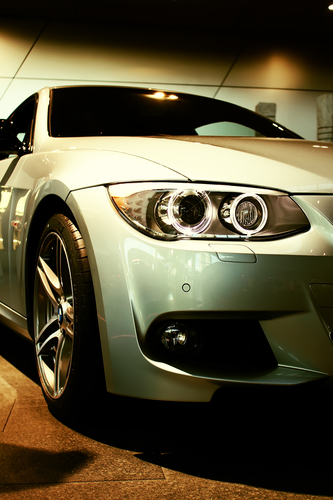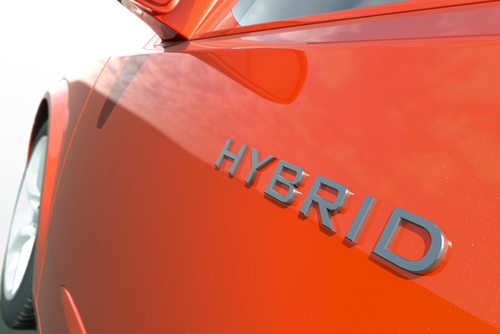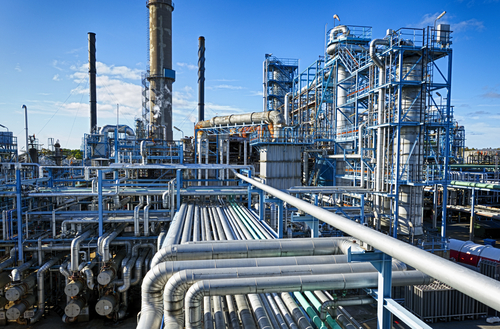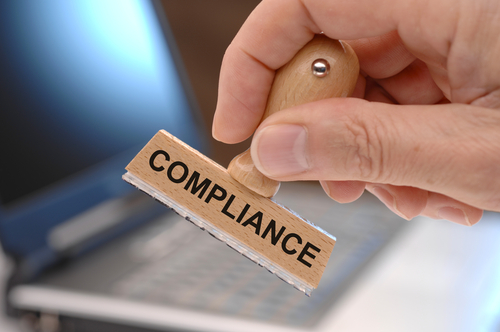Closure of Chinese Authorities for New Years Holiday
The year is coming to an end and so some holidays are coming up. In China, New Year’s celebrations are not as important as in the West, but New Year’s Day is also a public holiday there. The authorities and certification institutions will be closed December 30, 2019 until January 1, 2020 with everything re-opening again January 2, 2020, It can be expected that the current certification processes will see a small delay due to the closures.

The “Chinese New Year” holiday starts in 2020 in late January. This is a much more celebrated holiday with longer closures. We will inform you once we know the exact closure dates of each authority.
MPR China Certification GmbH will continue to support you in your certification processes. If you would like to have products checked for CCC please contact us any time.
Are you interested in CCC certification? For more information about the CCC certification in general, the process, and the costs associated with CCC, please visit our website and our news section where you will find current updates.
You can contact us via e-mail, or call us directly (UK: +44 2071931135, the rest of Europe: +49 69 2713769150, US: +1 773 654-2673). We are also happy to assist you with checking if your products need CCC certification and we can provide you with translations of Chinese regulations and standards.
BMW reports positive sales figures in China
BMW was able to report an increase in sales figures again. In October 2019, 1.7 percent more BMW, Mini and Rolls-Royce models were sold than in the previous year, 204,925 in total. For the current year, after ten months, a positive balance can also be drawn for the Munich company. Group sales of 2.07 million units were also 1.7 percent higher than in the same period last year. After analyzing the current fiscal year, the new CEO Oliver Zipse said: “After the first three quarters, we are on track to achieve our targets for the year as a whole.

Looking at the individual sales markets by region, demand in China and the USA picked up strongly, while the European market slipped into the red in October. China in particular made a significant contribution to the rising sales figures. Sales rose by 8.8 percent in October and by as much as 13.8 percent over the year. BMW also sold 6.7 percent more cars on the rest of the Asian market in the past ten months than in the previous year.
With its very profitable SUV and luxury models, BMW was able to benefit from a clear demand for these two vehicle categories on the Chinese market. In worldwide production, both the BMW X5 and the smaller BMW X3 increased by more than 67 percent compared to the previous year. The Munich manufacturer’s electric cars were also met with a good response, with sales rising by 8.6 percent. Does your company operate in the automotive industry and its suppliers? The Chinese market continues to promise excellent opportunities and growth rates. Certain products that are exported to China or sold or installed in China must undergo CCC certification. We are happy to advise you on certification according to the CCC (China Compulsory Certificate) guidelines.
For more information on how CCC certification may affect your company, or for more information about CCC certification in general, the process, and the associated costs, please visit our website and our News Section where you will find current updates twice a week.
Please do not hesitate to contact us for further details and consultation. You can contact us via e-mail, or call us (UK: +44 2071931135, Rest of Europe: +49 69 2713769150, US: +1 773 654-2673).
You can also check out our free CCC-Brochure, which can be downloaded right here as a PDF file or you consult our book (in English) “A Brief Guide to CCC: China Compulsory Certification”, which can be found directly hier on Amazon.
Geely Exports Commercial Vehicles to South Korea

In 1986 the company Zhejiang Geely Holding Group was established in China. In the first years their production focused on refrigerator parts, then later motorbikes. Before 1998 the first automobiles left the Geely production plant in Linhai, China.
Geely is a very successful automotive and motorbike producer with seven manufacturing locations in China. The manufacturing locations include Ningbo, Shanghai and Lanzhou. In 2016 Geely opened a commercial vehicle subsidiary Farizon Auto in Nanchong located in Sichuan province.
Geely/Farizon is hoping to extend their commercial vehicle marketing to foreign markets, with the South Korean market as their first venture outside of China. Geely chose two strategic partners: the international trade unit of Korean steel producer Posco and the electrified vehicle developer Curo Group Company. Posco International will function as sales agent in South Korea and be in charge of sales of specific models of Geely’s new energy vehicle range. The Curo Group will provide technical support for sales and services. Together they will develop the existing Farizon range of commercial vehicle models and adapt it to the Korean market and they will be responsible for making policies regarding importation, electric vehicle subsidy policies and local market segmentation.
This strategic overseas project is their first step of the expansion plan for Geely’s Farizon commercial vehicles brand.
If you need assistance with your KC Certification or have any questions, you can contact us any time. Call us directly: EU: +49-69-2713769150, UK: +44-2071931135, US: +1-773-654-2673) or send us an email.
Voluntary CQC Certification for Commercial Gas-Burning Appliance
Until the end of 2018, the license system played an important role in the development of the commercial gas-burning compliance industry in China. With the implementation of the implementation rule CQC13-448212-2019 “Safety and Performance Certification Rules for Commercial Gas-Burning Combustion Appliance” published by the CQC (China Quality Certification Center), a Voluntary CQC certification is now possible. Even though this is a voluntary certification, all products that fall into the product category “Commercial Gas-Burning Appliance” must conform to Chinese Standard GB35848-2018.
The goal of this change is to bring Commercial Gas-Burning plants closer to international standards in order to improve exchange and cooperation. In addition, thermal efficiency and CO2 emissions are to be controlled in order to ensure an improvement in environmental protection.
The Voluntary CQC Mark Certification improves the perceived product quality within the Chinese market, giving a competitive advantage over products that are not CQC certified, facilitating the access of foreign products. National quality certifications like the CQC certification receive a better reputation in China in comparison to the UL, CE or ECE markings. For many product groups the CQC Mark Certification has set the standard by which product selections are made by the Chinese consumers. Another advantage is that products marked with the voluntary CQC Mark Certification have a greatly reduced risk of being detained by Chinese customs.
The Chinese certification authority CQC regularly publishes new announcements on its official website about a wide range of products, such as products subject to CCC or products that can be certified through a voluntary CQC certification.
For more information on how CCC certification may affect your company, or for more information about CCC certification in general, the process, and the associated costs, please visit our website and our News Section where you will find current updates twice a week.
Please do not hesitate to contact us for further details and consultation. You can contact us via e-mail, or call us (UK: +44 2071931135, Rest of Europe: +49 69 2713769150, US: +1 773 654-2673).
You can also check out our free CCC-Brochure, which can be downloaded right here as a PDF file or you consult our book (in English) “A Brief Guide to CCC: China Compulsory Certification”, which can be found directly here on Amazon.
“In Compliance Magazine” Publishes an Article About Changes of the CCC Regulations
“In Compliance Magazine” published an English-language article on November 30, 2019 about changes of the CCC regulations. The article was written by Julian Busch, Managing Director of China Certification Corporation. The article can be found here.
On October 17, 2019 the Certification and Accreditation Administration of the People’s Republic of China (CNCA) published the announcement No. 44 which announced significant changes of the existing CCC regulations. The changes have been split into two categories and are relevant for several product groups such as interior parts of motor vehicles, seats or safety glass as well as motors, switches and welding equipment. To check if your components are affected by this change, please refer to our article here.
For some products CCC certification is not mandatory, while for other products groups a so called CCC Self-Declaration is required starting January 2020. As the applicant for the CCC Self-Declaration must be a Chinese company, in many case a new company needs to be established in China. You can find more information about the company establishment in China here.
Even if your product is no longer required to be CCC certified, it is important to note that automotive parts must continue to comply with applicable Chinese GB standards. Therefore, many car manufacturers require a voluntary certification from their suppliers.
If you have any questions about the new regulations, you need advice on your existing certificates or with the process of China Self-Declaration, please do not hesitate to contact us.
For more information on how CCC certification may affect your company, or for more information about CCC certification in general, the process, and the associated costs, please visit our website and our News Section where you will find current updates twice a week.
Please do not hesitate to contact us for further details and consultation. You can contact us via e-mail, or call us (UK: +44 2071931135, Rest of Europe: +49 69 2713769150, US: +1 773 654-2673).
You can also check out our free CCC-Brochure, which can be downloaded right here as a PDF file or you consult our book (in English) “A Brief Guide to CCC: China Compulsory Certification”, which can be found directly here on Amazon.
Toyota sets signal for electric vehicles in China ahead of Europe
While Toyota next year in China due to the legal quota regulation will present its first electric series vehicle, which is exclusively powered by batteries, customers in Europe still have to wait until 2022 or 2023, said Shigeki Terashi, vice president of Toyota at the Tokyo Motor Show. According to Terashi, they want to start on the European market with smaller vehicles. He left open whether these are completely redesigned models or just electric versions of the recently introduced Yaris Hybrid based on the new TNGA platform.
Despite a decline in sales in recent months as a result of reduced subsidies and benefits, Toyota continues to focus on China as the world’s largest market for electric vehicles. The company is taking a different path than its Japanese competitor Honda. Honda announced the day before that it will accelerate its plans to introduce electric vehicles, but is strongly committed to the European market and prefers it over other regions.

In China, Toyota plans to launch two fully electric mid-range SUVs. These models will be modified versions of C-HR and the identical IZOA and will be powered exclusively by a battery. The vehicles will be built by Toyota’s joint ventures in China, GAC and FAW. Despite their efforts, Terashi nevertheless had to admit that to his disappointment no battery-powered electric vehicles could be offered on the Chinese market at present and that the two new models would not be available until 2020.
Toyota’s strategy for electric vehicles for the American market remains unclear. In terms of sales, the US is the second largest market, yet many Americans are not willing to spend more money on an environmentally friendly vehicle, Terashi said. Hybrid cars don’t sell very well in the US, with many customers switching from mid-range models to SUVs and pickups due to low gasoline prices. Therefore, Toyota would rather bring a larger electric vehicle onto the North American market. To accomplish this, a cooperation with Subaru was announced in June 2019. However, at what time the first model from this cooperation will be ready for the market, no further precise information was given.
Are you a manufacturer of automotive and technology products? The Chinese market for vehicles with alternative and electric drives continues to develop dynamically and offers them good opportunities to export their products to China. For this they need the obligatory China Compulsory Certification (CCC), for which we are happy to advise them.
For more information on how CCC certification may affect your company, or for more information about CCC certification in general, the process, and the associated costs, please visit our website and our News Section where you will find current updates twice a week.
Please do not hesitate to contact us for further details and consultation. You can contact us via e-mail, or call us (UK: +44 2071931135, Rest of Europe: +49 69 2713769150, US: +1 773 654-2673).
You can also check out our free CCC-Brochure, which can be downloaded right here as a PDF file or you consult our book (in English) “A Brief Guide to CCC: China Compulsory Certification”, which can be found directly hier on Amazon.
 |
Author: Julian Busch
Publisher: MPR China Certification GmbH Tel.: +49 69 271 37 69 150 E-Mail: info@china-certification.com |
Magna opens new plant in China
The Canadian automotive supplier Magna will produce transmissions, inverters and motors for the Volkswagen Group’s electric vehicles at the production site. Magna, headquartered in Toronto, is the world’s third-largest automotive supplier with sales of 40.83 billion US dollars, according to a ranking in the trade journal Automotive News. The new plant near Shanghai has a size of around 66,000 square meters and is operated by Huayu Automotive, a joint venture founded in 2017. Huayu, for its part, is majority owned by SAIC Motor Corp., which owns the MG brand and its vehicles and also has a stake in Shanghai (SAIC) Volkswagen Automotive.
Magna expects the first components to be delivered in the second half of 2020. The products will be installed in various electrically powered VW and Audi models in Europe and China. These in turn are based on the Group platform MEB, which Volkswagen has developed specifically for its new generation of electric vehicles.
In China, the environment for vehicles with alternative drive systems is developing positively, with the number of units produced rising by around 60 percent to 1.27 million in 2018. Magna is now well positioned on the Chinese market in the segment of electric drives and components. Already in July, the supplier announced its cooperation with the BAIC Group in a joint venture for the production of electric vehicles in Zhenjiang. This is Magna’s first investment in a complete production line for vehicles outside Europe.
The Volkswagen Group has also pushed ahead with the localization of its electric vehicles for its China business. It has decided to introduce 30 new models within the next two years, half of which will be produced in China. Some of the vehicles will also be developed exclusively for the Chinese market and will only be sold there. The first step towards local production was taken by Volkswagen in June at the Tianjin transmission plant with the production of engines and transmissions for plug-in hybrid vehicles and electric cars.
Experts expect further continous growth for the Chinese market of electric vehicles. Take advantage of this and export your products to China. You will need the obligatory China Compulsory Certification (CCC), for which we will be happy to advise you.
For more information on how CCC certification may affect your company, or for more information about CCC certification in general, the process, and the associated costs, please visit our website and our News Section where you will find current updates twice a week.
Please do not hesitate to contact us for further details and consultation. You can contact us via e-mail, or call us (UK: +44 2071931135, Rest of Europe: +49 69 2713769150, US: +1 773 654-2673).
You can also check out our free CCC-Brochure, which can be downloaded right here as a PDF file or you consult our book (in English) “A Brief Guide to CCC: China Compulsory Certification”, which can be found directly hier on Amazon.





